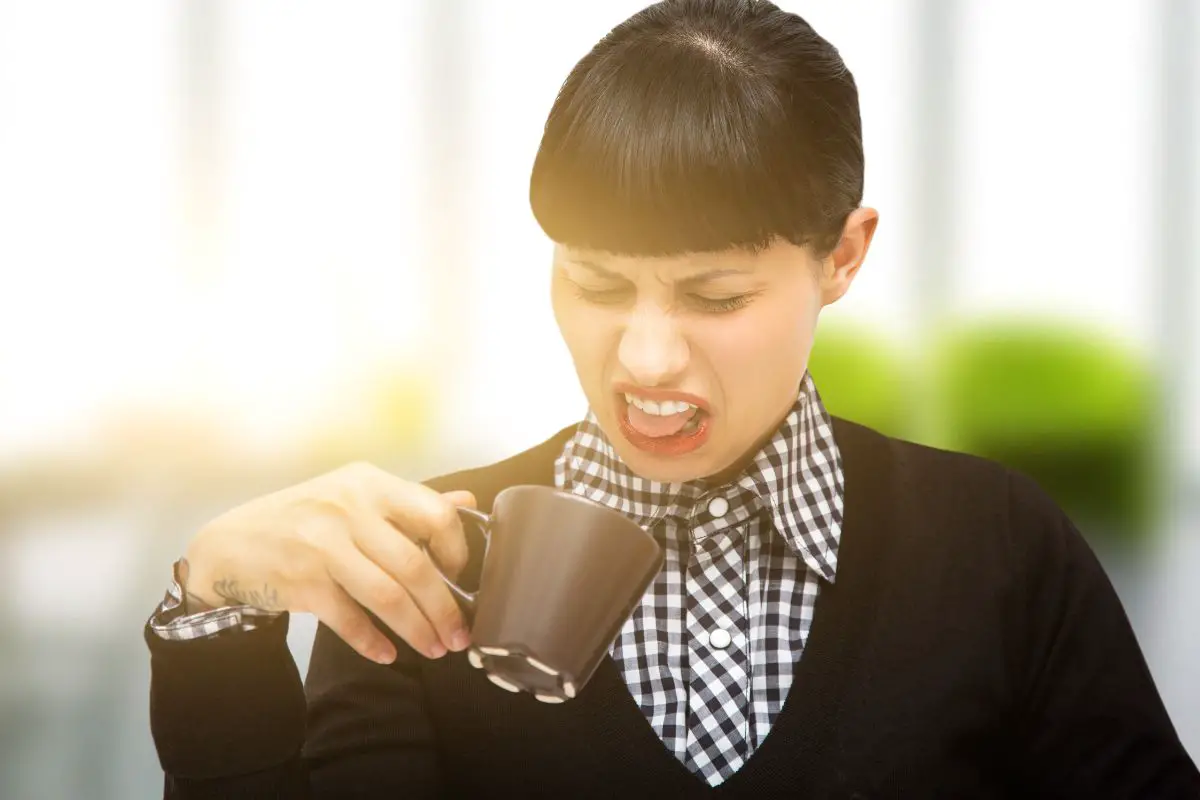Many people drink coffee to boost their energy levels in the morning. Others take it to fight off an afternoon slump. Regardless of what makes you drink coffee, there are several benefits that come with drinking coffee. Coffee is shown to reduce the risk of hearing loss, prostate cancer, and heart failure. Also, research shows that black, dark roast coffee helps in losing weight.

Unfortunately, coffee may have negative health effects on certain people. For instance, some people experience side effects or allergic reactions soon after consuming coffee. Some feel jittery or anxious after drinking coffee. Others feel the urge to rush to the bathroom. Whichever the case, coffee may affect the health of certain people. So what kind of people can’t drink coffee? Keep reading to find out.
1. Pregnant Women
According to the American College of Obstetrics and Gynecology, pregnant women should not consume more than 200 milligrams of caffeine daily, which is equivalent to two standard cups of coffee. Exceeding this amount of caffeine can increase the risk of premature labor, miscarriage, and low birth weight. Other research findings indicate that there is no safe amount of coffee intake for pregnant women. They recommend pregnant women to discuss their coffee intake with their obstetrician or gynecologist.
2. Breastfeeding Women
Coffee contains caffeine, which is a diuretic and stimulant. Thus, breastfeeding women are at a higher risk of dehydration upon drinking coffee. The American Pregnancy Association advises breastfeeding women to avoid coffee.
3. People with Irritable Bowel Syndrome (IBS)
Nutritionists and dietitians argue that caffeine in coffee can increase bowel irregularity, which may cause diarrhea. Diarrhea is a common symptom of IBS. If you are suffering from IBS, it is advised to limit or avoid coffee and other caffeinated drinks.
4. Individuals with Overactive Bladder
Coffee intake can increase urinary urgency and frequency. That is why dietitians advise people to avoid drinking coffee before traveling. Also, if you are not a regular coffee drinker, you may be more sensitive to an overactive bladder.
5. Glaucoma Patients
Individuals suffering from glaucoma may experience increased intraocular pressure upon drinking coffee. Thus, glaucoma patients should limit or avoid coffee intake. Also, research findings indicate that caffeine increases the risk of glaucoma among individuals who already have a predisposition to elevated eye pressure.
6. Individuals with Diarrhea
Some people drink coffee first thing in the morning to help move their bowels. However, individuals experiencing diarrhea should not desire this effect. Coffee can worsen diarrhea. If you must drink coffee while experiencing diarrhea, take decaf coffee instead of regular coffee. Decaf contains an insignificant amount of caffeine. However, hot drinks often stimulate the bowels, making them less ideal for individuals experiencing diarrhea.
7. Gastroesophageal Reflux (GERD) Patients
Caffeine is known to loosen the lower esophageal sphincter, a valve between the stomach and esophagus. If this valve loosens, acidic contents in the stomach may enter the esophagus. As a result, you may experience uncomfortable GERD symptoms. If you notice any GERD symptoms after drinking coffee, switch to decaf.
8. Individuals with Heart Conditions
Caffeine in coffee can lead to a temporary increase in heart rate and blood pressure. If you have pre-existing heart conditions such as high blood pressure and arrhythmias (heart arrhythmia), consult your doctor on whether you should drink coffee and the amount to consume safely. However, there is no conclusive evidence of the long-term effects of coffee on heart health or blood pressure.
9. Individuals Prone to Panic Attacks or Extreme Anxiety
Caffeine in coffee works as a stimulant. Its stimulating effects can worsen anxiety among some individuals. People who experience panic attacks or anxiety regularly should reduce or avoid coffee. Existing research shows that drinking at least 5 cups of coffee can cause panic attacks among individuals suffering from anxiety. Even if you drink a lesser amount, you should watch your coffee intake to avoid worsening existing anxiety.
10. Individuals Experiencing Sleep Disorders
Many people often drink coffee to help them stay awake. If you have a poor night’s sleep, you will want to drink coffee to stay awake during the day. For some people, they drink coffee in the evening to stay awake while working at night. However, your bad coffee habit might lead to poor sleep and fatigue. Drinking coffee late in the day can affect your sleep quality.
Research shows that coffee disrupts sleep patterns when consumed about six hours before retiring to bed. The research is based on consuming a maximum of 400 mg of caffeine (four cups of coffee) per day. If you exceed this amount, you may experience insomnia, especially when you consume coffee late in the day.
11. Epileptic Patients
Limited research findings indicate that excessive consumption of coffee increases the frequency of seizure attacks. Thus, anyone suffering from epilepsy should reduce or avoid coffee intake. If you are epileptic, consult your neurologist before taking caffeine.
12. Children
Coffee can cause more serious side effects among kids, especially those under 12 years. Caffeine in children, even in smaller doses, can lead to increased anxiety, increased heart rate, upset stomach, insomnia, and difficulty concentrating among other health issues. Besides, coffee intake can mask hunger cues in toddlers. As a result, they may fail to get sufficient nutrition needed for proper growth and development. Additionally, coffee is acidic and can damage tooth enamel, thereby increasing the chances of developing cavities.